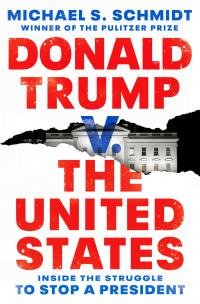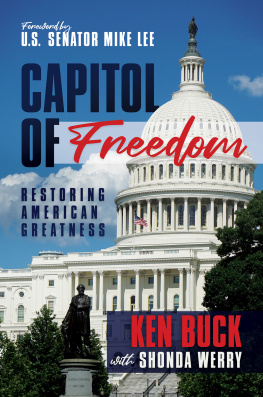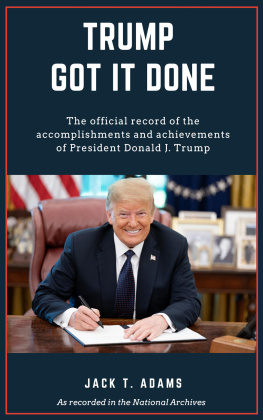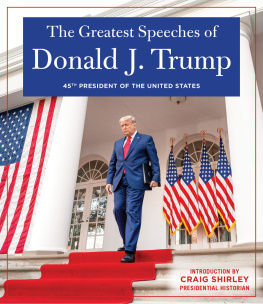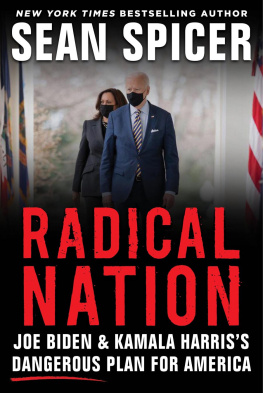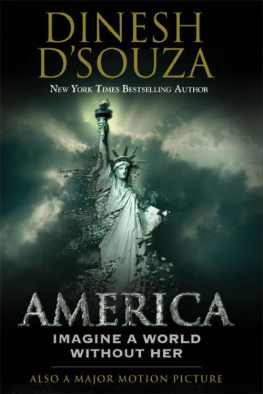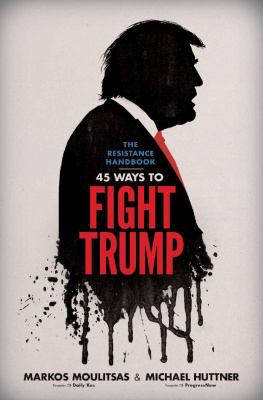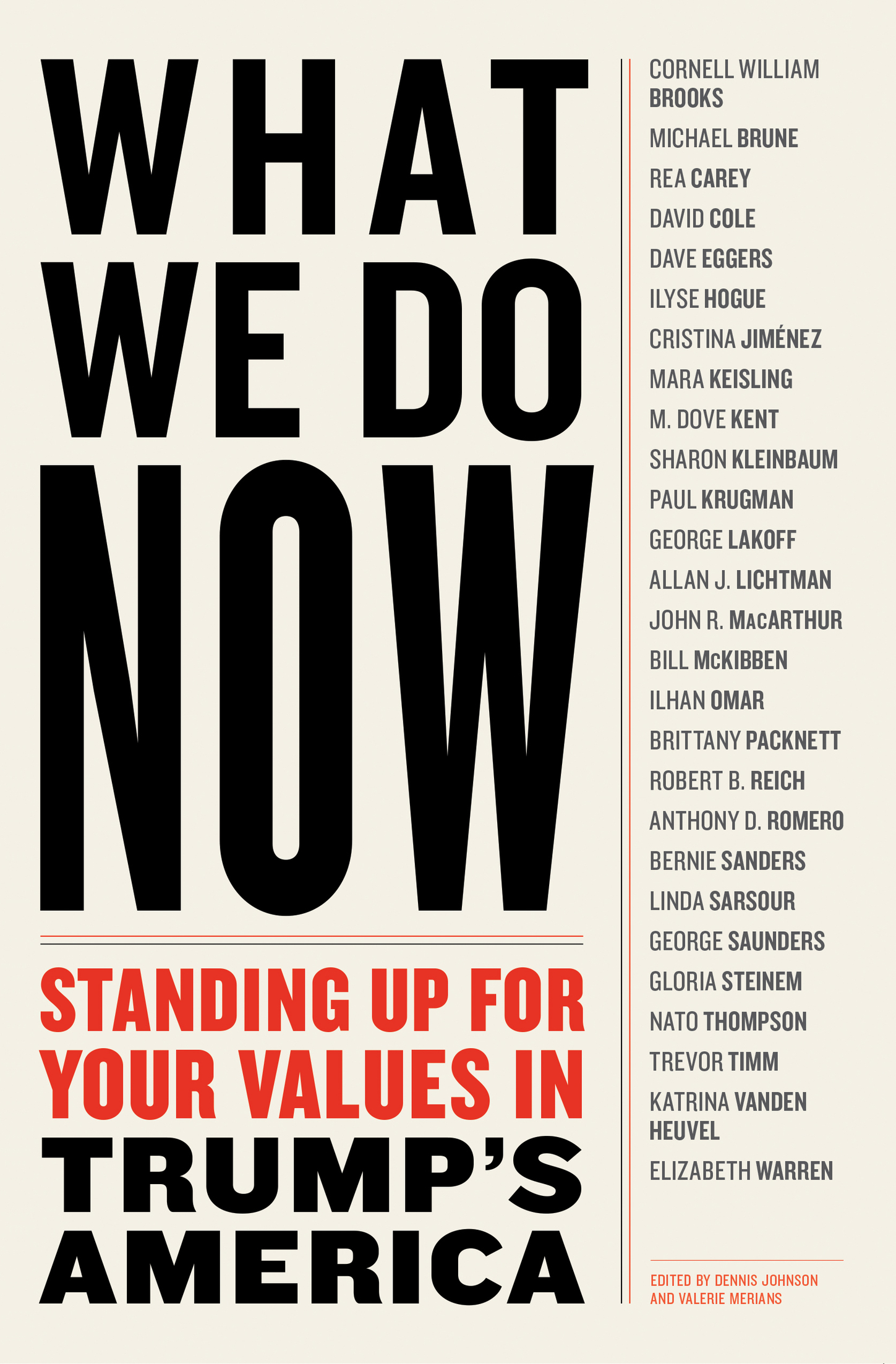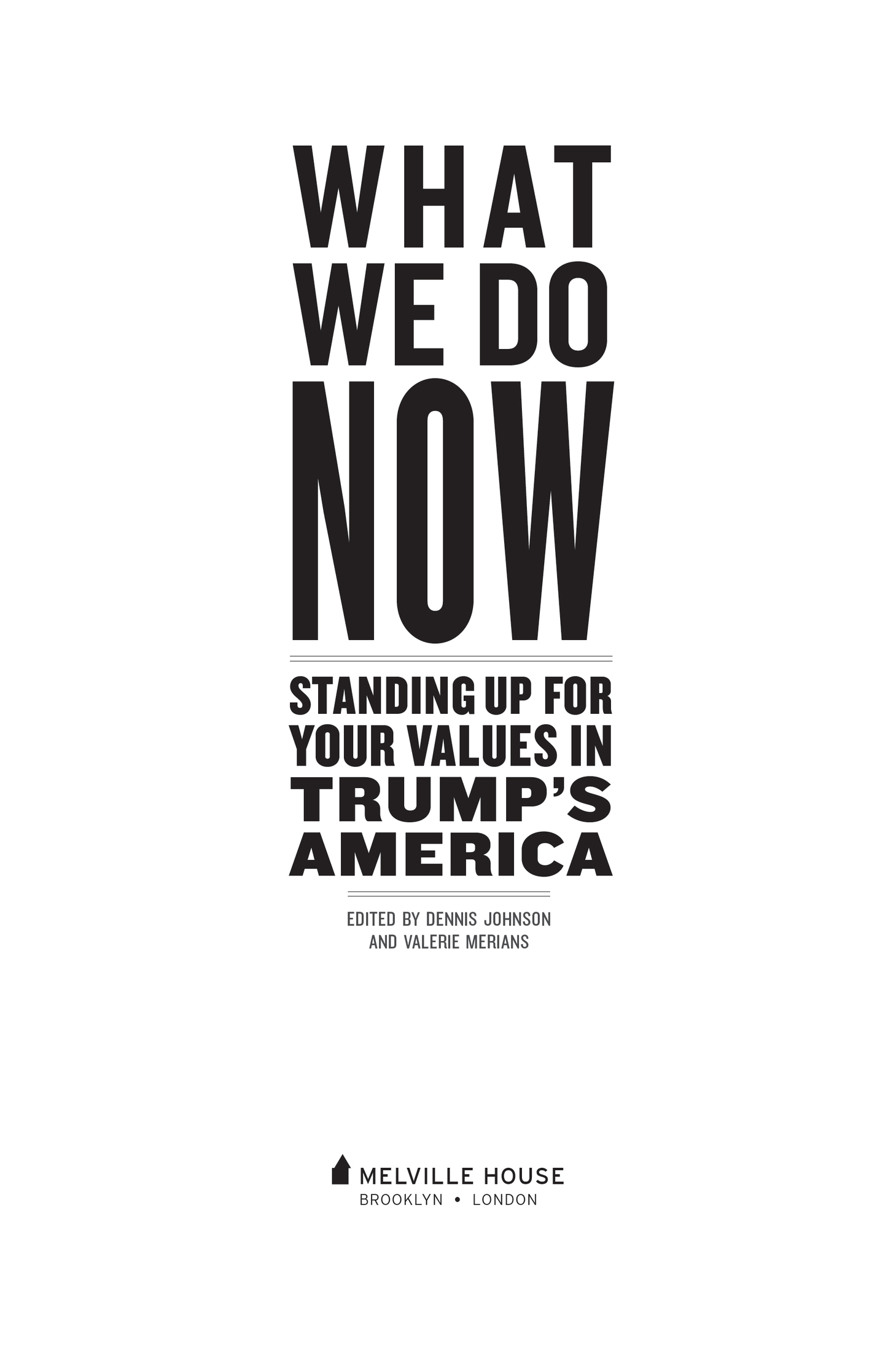Unless otherwise indicated, copyright for individual essays belong to their respective authors.
Reprinted by permission of Thomas Dunne Books, an imprint of St. Martins Press, LLC. All rights reserved.
White People: What Is Your Plan for the Trump Presidency? by Brittany Packnett first appeared on Vox. Reprinted by permission of Vox Media, Inc.
Reprinted with permission of Riverhead Books.
None of the Old Rules Apply: Travels Through Post-Election America by Dave Eggers first appeared in The Guardian. Reprinted with permission.
INTRODUCTION
BY DENNIS JOHNSON
Somehow, the United States has always averted a takeover from the far right. It was something that made our country great. From Father Coughlan and the fascists of the 1920s and 30s, to Joe McCarthy and the Cold War demagoguery of the 1940s and 50s, through George Wallace and the white supremacists of the 1960s, and on, Americans have always, ultimately, resisted the call to calamity by listening, instead, to what Lincoln called the better angels of our nature.
It was such a long spellnearly a centurythat we were all perhaps too secure in the idea that it cant happen here.
But now it has. It has happened here. The most extreme and uncouth right-wing candidate ever to run for high office in the United States has somehow won the presidency. No one in the long history of American politics has ever so openly attacked the rich demographics of this nation, formed, after all, from its inception by immigrantscrude attack after attack upon women, Hispanics, African Americans, the disabled, Muslims, and Jewswhile also impugning the idea of a free press. Its important to note that the demagogues being cited in comparisonDonald Trump quoted Mussolini on the campaign trailwere also considered buffoons at first, mocked for their appearance. A weird little mustache, a shaved head with jackboots, a bizarrely bright orange hairstyle
It has happened here.
The despair at this is widespread and lingering, and is abetted by the fact that, well, significantly more peoplemillions, in factvoted for the woman who somehow lost the election.
Which is to say that the grieffor thats what it isis earned. It is an unprecedented development in the history of our democracy, and one that seems indeed to spell doom for that democracy. How can the defeated majority rouse itself to overcome its sincere grief and disillusionment?
These twenty-seven essays by some of the best and the brightest of Americas progressive leadershereby announcing themselves as the new American resistance movementoffer some galvanizing answers. They suggest actual strategies on how to move forward in the face of what seem to be overwhelming odds. And beyond the practical, they offer something elsethe notion that we who are appalled by this are not alone, and can do something about it if we join forces.
To be sure, it will be a long strugglefour years at least, we have to presumeand difficult. Very difficult. But now is indeed the time for all good people to come to the aid of their country, and its founding and inclusive principles of democracyin short, to actually make America great again.
I
SETTING A NEW LIBERAL AGENDA
WHERE DO WE GO FROM HERE?
Bernie Sanders
Bernie Sanders is the junior U.S. senator from Vermont.
WHERE DO WE GO FROM HERE?
The time is long overdue for real financial reform in this country. It will not be easy given the enormous power of Wall Street and its political supporters, but it is absolutely necessary if we are to have the kind of strong and stable economy that we need to rebuild the shrinking middle class.
The heads, bankers win/tails, everyone else loses system must come to an end. We need to create a financial system that works for ordinary Americans, not just those on top. Here are just some of the steps forward that will help us achieve that goal.
ENDING TOO BIG TO FAIL
To create an economy that works for all Americans and not just a handful of billionaires, we have got to address the ever-increasing size of the mega-banks. And we must end, once and for all, the scheme that is nothing more than a free insurance policy for Wall Street: the policy of too big to fail.
We need a banking system that is part of a productive economymaking loans at affordable rates to small- and medium-size businesses so that we create a growing economy with decent-paying jobs. We need a banking system that encourages homeownership by offering affordable mortgage products that are designed to work for both the lender and the borrower. We need a banking system that is transparent and accountable, and that adheres to the highest ethical standards as well as to the spirit and the letter of the law.
This is not the banking system we have today. Wall Street cannot continue to be an island unto itself, gambling trillions of other peoples dollars on risky derivatives, acting illegally, and making huge profits, all the while assured that if its schemes fail, the taxpayers will be there to bail them out.
Of course, that is precisely what happened in 2008, when taxpayers bailed out Wall Street. Financial institutions received a $700 billion gift from Congress. And, thanks to an amendment I offered in 2010, we were able to learn that the Federal Reserve provided $16 trillion in secret loans to some of the largest financial institutions and corporations in the United States and throughout the world. We were told that these unprecedented actions were necessary because the financial institutions involved were simply too big to fail. In other words, they were so large and intertwined with all aspects of the economy that if they collapsed, the U.S. economy and maybe the entire global economy would go down with them.
One might have thought, as part of the bailout, these huge banks would have been reduced in size to make certain that we never experience a recurrence of what happened in 2008. Well, thats not exactly what happened. In fact, the very opposite occurred. Today, three out of the four largest financial institutionsJPMorgan Chase, Bank of America, and Wells Fargoare about 80 percent bigger than they were before we bailed them out.


